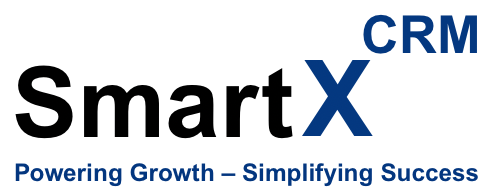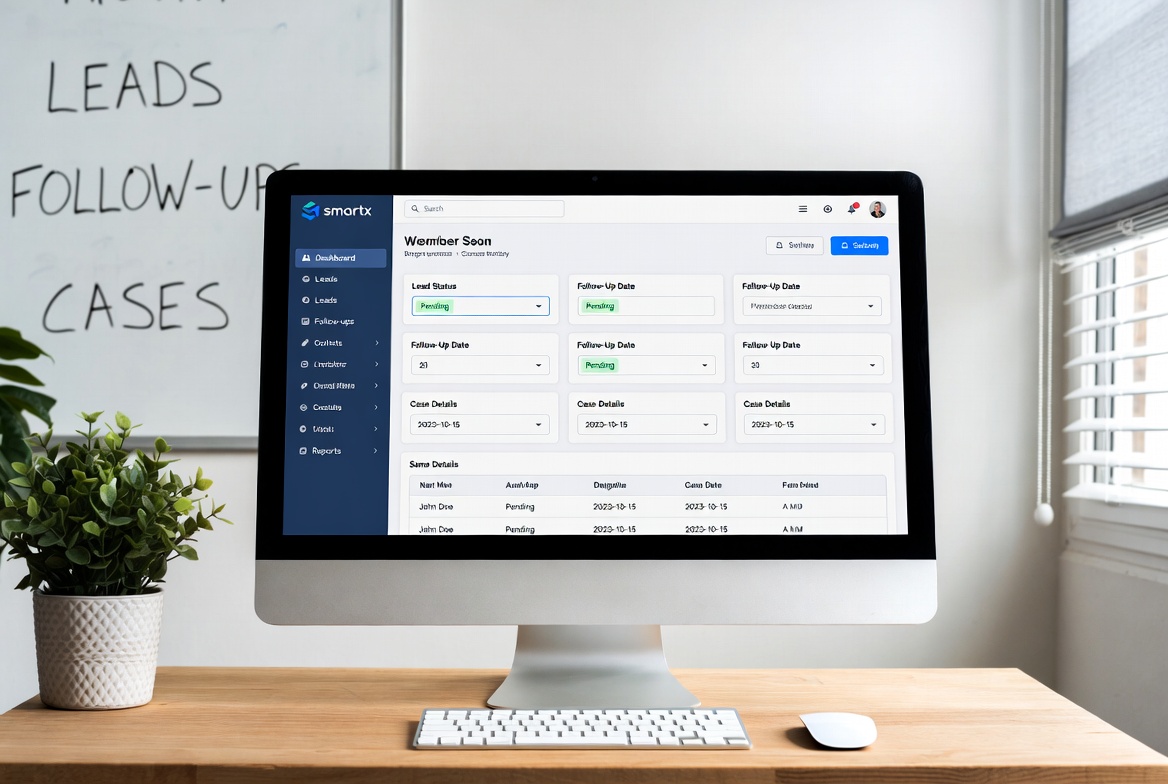Running a small business today feels like juggling flaming torches while riding a unicycle. You’re managing customer relationships, overseeing projects, tracking deadlines, and trying to keep everyone happy – all while wearing multiple hats. If this sounds familiar, you’re not alone. The good news? Small business CRM and project management integration can be your business’s secret weapon to transform chaos into organized success.
In this comprehensive guide, we’ll explore how combining customer relationship management with project management capabilities can revolutionize your small business operations, boost productivity, and drive sustainable growth in 2025.
What is Small Business CRM and Project Management Integration?
Small business CRM and project management integration refers to the seamless combination of customer relationship management tools with project management features within a single platform or interconnected systems. This powerful synergy allows businesses to manage customer interactions, track sales opportunities, and execute projects while maintaining complete visibility across all business operations.
Unlike traditional approaches where businesses juggle separate tools for managing customers and projects, integrated solutions provide a unified workspace where teams can collaborate effectively, share information instantly, and maintain consistent customer experiences throughout the entire business lifecycle.
Why Small Businesses Need Integrated CRM and Project Management Solutions
The modern small business landscape demands agility, efficiency, and exceptional customer service. Here’s why CRM with project management features has become essential:
Enhanced Operational Efficiency: Instead of switching between multiple platforms, teams work within a single ecosystem, reducing time waste and minimizing the risk of information silos.
Improved Customer Experience: When project teams have direct access to customer information and communication history, they can deliver more personalized service and respond to client needs proactively.
Better Resource Management: Integrated systems provide comprehensive visibility into both customer pipelines and project resources, enabling smarter allocation decisions and preventing overcommitment.
Streamlined Communication: Teams can collaborate seamlessly across departments, ensuring everyone stays aligned on customer requirements and project deliverables.
Key Benefits of Small Business CRM and Project Management Integration
1. Unified Customer Journey Management
Integrated small business CRM and project management solutions enable you to track customers from initial contact through project completion and beyond. This comprehensive view helps you:
- Identify upselling and cross-selling opportunities during project execution
- Maintain consistent communication across all customer touchpoints
- Ensure project deliverables align with customer expectations set during the sales process
- Track customer satisfaction throughout the entire business relationship
2. Enhanced Team Collaboration and Productivity
When your sales, marketing, and project teams work within the same system, collaboration becomes natural and efficient. Benefits include:
- Real-time information sharing between departments
- Reduced duplicate data entry and manual handoffs
- Improved project visibility for sales teams to set realistic expectations
- Better resource planning based on sales pipeline forecasts
3. Improved Project Profitability and Resource Allocation
Small businesses that integrate CRM with project management can flip deals into project boards seamlessly, tracking progress while keeping customer details linked throughout. This integration enables:
- Accurate project scoping based on customer requirements captured in the CRM
- Better time tracking and resource utilization monitoring
- Enhanced profitability analysis by connecting project costs to customer lifetime value
- Improved capacity planning using sales pipeline data
4. Data-Driven Decision Making
Integrated CRM and project management software implementation provides real-time dashboards and reports to track revenue, team performance, and project efficiency. This data accessibility supports:
- Strategic business planning based on comprehensive performance metrics
- Proactive issue identification and resolution
- Optimized pricing strategies using historical project data
- Enhanced forecasting accuracy combining sales and project completion data
Essential Features to Look for in Small Business CRM and Project Management Software
Core CRM Capabilities
Contact and Lead Management: Comprehensive customer profiles with interaction history, communication preferences, and relationship mapping capabilities.
Sales Pipeline Management: Visual sales funnel tracking with customizable stages, probability scoring, and automated progression rules.
Communication Integration: Built-in email, phone, and messaging capabilities with automatic activity logging and follow-up reminders.
Marketing Automation: Lead nurturing workflows, email campaigns, and customer segmentation based on behavior and preferences.
Advanced Project Management Features
Task and Milestone Tracking: Hierarchical task management with dependencies, deadlines, and progress monitoring across multiple projects.
Resource Management: Team capacity planning, workload balancing, and skill-based task assignment capabilities.
Time Tracking and Billing: Accurate time logging with automated invoicing and project profitability analysis.
Collaboration Tools: File sharing, real-time commenting, team messaging, and stakeholder communication portals.
Integration and Automation Capabilities
Workflow Automation: Custom triggers and actions that streamline repetitive processes and ensure consistent execution.
Third-party Integrations: Seamless connections with accounting software, email platforms, calendar applications, and industry-specific tools.
Reporting and Analytics: Comprehensive dashboards combining CRM and project metrics with customizable reporting capabilities.
Mobile Accessibility: Full-featured mobile applications ensuring team productivity regardless of location.
Top Small Business CRM and Project Management Solutions in 2025
1. HubSpot CRM with Project Management Add-ons
Best for: Small businesses seeking a free starting point with scalable growth options.
HubSpot’s ecosystem provides robust CRM functionality with project management capabilities through native features and integrations. The platform excels at marketing automation and customer journey tracking while offering task management and team collaboration tools.
Key Strengths:
- Comprehensive free tier with essential CRM features
- Excellent marketing automation and lead nurturing capabilities
- Strong integration ecosystem with popular project management tools
- User-friendly interface with extensive learning resources
2. Monday.com Work Management Platform
Best for: Creative agencies and service-based small businesses requiring visual project tracking.
Monday.com bridges the gap between CRM and project management with its flexible board system that adapts to various business processes. The platform excels at visual project tracking while maintaining customer relationship functionality.
Key Strengths:
- Highly customizable workflows and board layouts
- Strong visual project tracking and team collaboration features
- Built-in CRM capabilities with sales pipeline management
- Excellent mobile accessibility and user adoption
3. SmartX CRM (Mizo CRM)
Best for: Small businesses requiring industry-specific solutions with integrated project management.
As a comprehensive business management platform, SmartX CRM offers tailored solutions for various industries while maintaining robust project management capabilities. The system emphasizes automation and customer relationship optimization.
Key Strengths:
- Industry-specific customization options
- Strong automation and workflow capabilities
- Comprehensive customer journey tracking
- Integrated communication tools including WhatsApp and email automation
4. Salesforce Essentials with Project Management Apps
Best for: Small businesses planning significant growth and requiring enterprise-grade scalability.
Salesforce provides unmatched CRM functionality with extensive project management integration options through its AppExchange marketplace. While more complex, it offers unparalleled customization and growth potential.
Key Strengths:
- Market-leading CRM capabilities and customization options
- Extensive third-party integration marketplace
- Advanced analytics and reporting features
- Strong mobile platform and offline capabilities
Implementation Best Practices for Small Business CRM and Project Management
Phase 1: Planning and Preparation
Define Your Requirements: Document current processes, identify pain points, and establish success criteria for your integrated solution.
Choose the Right Solution: Evaluate platforms based on your specific industry needs, team size, budget constraints, and growth projections.
Plan Your Data Migration: Audit existing customer and project data, clean up duplicates, and establish data import procedures.
Design Your Workflows: Map out customer journeys, project processes, and team collaboration requirements before configuration begins.
Phase 2: Configuration and Setup
Customize Fields and Layouts: Configure the system to match your business terminology, processes, and reporting requirements.
Set Up Automation Rules: Implement workflows that reduce manual work while maintaining quality control and consistency.
Configure User Permissions: Establish appropriate access levels ensuring data security while enabling necessary collaboration.
Create Templates and Standards: Develop project templates, communication templates, and standard operating procedures.
Phase 3: Training and Adoption
Provide Comprehensive Training: Ensure all team members understand how to use both CRM and project management features effectively.
Establish Usage Guidelines: Create clear policies for data entry, communication protocols, and system maintenance procedures.
Monitor Adoption Metrics: Track system usage, user engagement, and identify areas requiring additional support or training.
Gather Feedback and Iterate: Regularly collect user feedback and make system adjustments to improve adoption and efficiency.
Common Challenges and Solutions
Challenge 1: User Adoption Resistance
Solution: Focus on demonstrating immediate value rather than overwhelming users with features. Start with core functionality and gradually introduce advanced capabilities as teams become comfortable.
Challenge 2: Data Quality Issues
Solution: Implement data validation rules, regular cleanup procedures, and clear data entry standards. Consider automated data enrichment tools to maintain accuracy.
Challenge 3: Integration Complexity
Solution: Prioritize critical integrations first and work with experienced implementation partners when dealing with complex system connections.
Challenge 4: Customization Overload
Solution: Begin with standard configurations and customize gradually based on actual usage patterns rather than anticipated needs.
Measuring Success: KPIs for Integrated CRM and Project Management
Customer Relationship Metrics
Customer Acquisition Cost (CAC): Track the total cost of acquiring new customers including both sales and marketing expenses.
Customer Lifetime Value (CLV): Monitor the total revenue potential from customer relationships over time.
Customer Satisfaction Scores: Measure customer happiness throughout the project lifecycle using surveys and feedback tools.
Lead Conversion Rates: Track how effectively your integrated system converts prospects into paying customers.
Project Management Metrics
Project Completion Rates: Monitor on-time and on-budget project delivery performance.
Resource Utilization: Track team productivity and capacity optimization across projects.
Project Profitability: Analyze margins and identify most profitable project types and customers.
Time-to-Market: Measure how quickly you can deliver projects from initiation to completion.
Operational Efficiency Metrics
System Adoption Rates: Track user engagement and feature utilization across your organization.
Process Automation Benefits: Measure time saved through automated workflows and reduced manual tasks.
Communication Effectiveness: Monitor response times, collaboration frequency, and stakeholder engagement.
Data Quality Scores: Track accuracy, completeness, and consistency of information in your integrated system.
Future Trends in Small Business CRM and Project Management
Artificial Intelligence and Machine Learning Integration
Predictive Analytics: AI-powered insights will help small businesses anticipate customer needs, predict project risks, and optimize resource allocation.
Automated Task Management: Machine learning algorithms will automatically assign tasks, suggest optimal team compositions, and predict project outcomes.
Intelligent Customer Segmentation: Advanced analytics will enable more precise customer targeting and personalized communication strategies.
Enhanced Mobile and Remote Work Capabilities
Mobile-First Design: Future platforms will prioritize mobile experiences, enabling full functionality regardless of device or location.
Augmented Reality Integration: AR tools will enhance project visualization, remote collaboration, and customer presentation capabilities.
Voice and Conversational Interfaces: Natural language processing will enable voice-activated task management and hands-free system interaction.
Industry-Specific Customization and Vertical Integration
Specialized Industry Solutions: Platforms will offer deeper industry-specific functionality for sectors like healthcare, construction, and professional services.
Regulatory Compliance Automation: Built-in compliance management will help small businesses navigate industry regulations automatically.
Supply Chain Integration: Enhanced connections with suppliers, vendors, and partners will create more comprehensive business ecosystems.
Choosing the Right Small Business CRM and Project Management Solution
Evaluation Criteria
Scalability: Ensure your chosen solution can grow with your business without requiring complete platform changes.
Integration Capabilities: Verify compatibility with existing tools and systems your business relies upon.
User Experience: Prioritize platforms that your team will actually want to use rather than be forced to use.
Total Cost of Ownership: Consider not just subscription costs but implementation, training, and maintenance expenses.
Vendor Support: Evaluate the quality of customer support, training resources, and community engagement.
Implementation Timeline
Months 1-2: Planning and Selection
- Requirements gathering and solution evaluation
- Vendor demonstrations and proof-of-concept testing
- Contract negotiation and purchase decision
Months 3-4: Configuration and Setup
- System configuration and customization
- Data migration and validation
- Integration setup and testing
Months 5-6: Training and Go-Live
- User training and adoption programs
- Pilot testing with selected teams
- Full deployment and monitoring
Months 7-12: Optimization and Expansion
- Performance monitoring and optimization
- Advanced feature implementation
- Scaling to additional teams and processes
Conclusion: Transform Your Small Business with Integrated CRM and Project Management
Small business CRM and project management integration isn’t just a trend—it’s a fundamental shift toward more efficient, customer-centric operations. By combining these essential business functions, you create a powerful platform for sustainable growth, improved customer satisfaction, and enhanced team productivity.
The key to success lies in choosing the right solution for your specific needs, implementing it thoughtfully, and maintaining focus on user adoption and continuous improvement. Whether you’re managing a handful of clients or hundreds, the right integrated platform will provide the foundation for scaling your operations while maintaining the personal touch that sets small businesses apart.
Remember that technology is only as powerful as the people using it. Invest in training, encourage adoption, and regularly evaluate your processes to ensure you’re maximizing the value of your integrated CRM and project management solution.
As we move forward in 2025, businesses that embrace integrated approaches to customer and project management will have significant competitive advantages. They’ll deliver better customer experiences, operate more efficiently, and make data-driven decisions that drive sustainable growth.
Ready to transform your small business operations? Start by evaluating your current processes, identifying integration opportunities, and exploring solutions that align with your business goals and growth aspirations. The future of small business management is integrated, intelligent, and customer-focused—and that future starts now.
Looking for a comprehensive small business CRM and project management solution? Explore SmartX CRM’s integrated platform designed specifically for growing businesses. With features ranging from lead management to automated follow-ups, SmartX CRM provides the tools you need to streamline operations and accelerate growth.





Leave a comment: